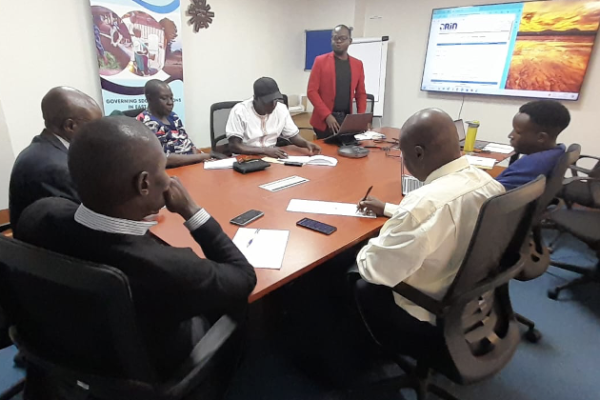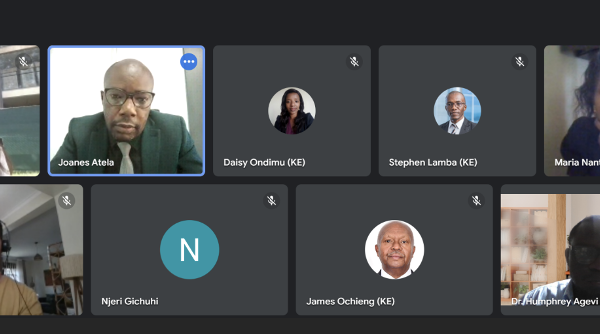The Nairobi Risk Hub co-hosted discussions around the Cities and COVID-19 thematic area at the ARIN Conference held on 18th to 20th November 2020. The overall theme of the 3-day conference was Africa in the post COVID-19 World: Lessons for Research and Policy. The virtual conference attracted a global audience of key stakeholders from the academia, policy, and practice fields. Through deliberations comprised of keynote speeches, panel sessions, book chapter presentations and discussions, the thought-provoking discourse centered on the COVID-19 pandemic, its implications on African cities and the emerging lessons for urban planners, cognate practitioners, and policy makers. This culminated into propositions of pathways through which cities in the post COVID-19 world can build resilience to different shocks and stresses, in Africa and beyond.
Evidence on the current state of cities, was provided by the Nairobi Risk Hub based on the ongoing research on disaster risk reduction and building resilience in Nairobi. This evidence prompted imaginaries of what is desired (resilient tomorrow’s cities) and advanced the discourse into possible impact pathways through which African cities of the future can be resilient.
The deliberations were informed by underlying issues in Africa such as rapid urbanization and projections, where more than half of the continent’s population is expected to live in cities by the year 2035. The rapid and unplanned urban growth, increasing numbers of the urban poor, and the longstanding vulnerabilities and risks have exacerbated the challenges in most urban systems in African cities, which have manifested in their COVID-19 response. Conversations revolved around past and current cities’ responses to the COVID-19 pandemic, the potential pathways to rebuild resilience post COVID-19, and the emerging lessons.
Some of the key messages that emerged from the deliberations include:
- People centered and gender sensitive risk management policies are critical for building preparedness to pandemics and other disasters. This makes for healthy and equitable urban societies that prioritize socioeconomic and political inclusion, effectively reducing the requisite vulnerabilities.
- Pandemics are complex with multifaceted and cascading impacts, with COVID-19 unearthing and exacerbating existing vulnerabilities. This necessitates integrated risk management that includes social, economic and environmental strategies, for enhanced preparedness in the face of similar challenges in the future.
- Impacts of global pandemics such as COVID-19 are highly contextual. Thus, context-specific actions could better respond to different societal needs and impacts of disasters.
- Decolonizing urban development processes by recognizing local and indigenous knowledge is important in facing urban challenges and risks such as the COVID-19 pandemic, and promoting sustainable development.
Overall, the discussions and deliberations were centered on building the desired resilient African cities by diagnosing the existing gaps as exposed by the pandemic, and pointing out areas of focus in achieving the desired African cities post COVID-19 pandemic. Moreover, evidence generation and data are key toCOVID-19 response and future risk management in African cities and beyond. The role of research in building resilient cities beyond the COVID-19 pandemic is evident. While the pandemic has exposed the existing gaps in urban systems, extent of vulnerabilities, interlinkages of hazards, and cascading impacts of disasters, the critical question remains on the changes in policy and practice, that will be occasioned by the pandemic. Such changes should address the preexisting vulnerabilities, develop capacities, and provide support systems that promote resilience in cities, in the post COVID-19 world.
Read the full report here….



